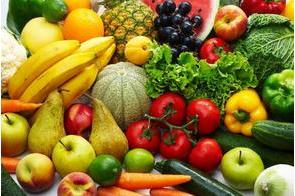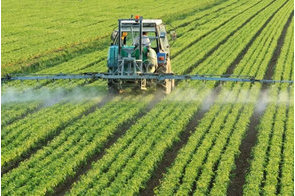Renewed threat to bees will undercut food security, ecosystem

Summary
The EPA’s decision – which threatens the bee population – will deprive many of the health benefits of honey and the income that is generated from it.
The United States Environmental Protection Agency (EPA) recently issued a long-term approval for the use of sulfoxaflor – an insecticide that destroys aphids, plant bugs and other highly-destructive insect pests. The agency cited private chemical industry studies that it says show the chemical product does only lower-level harm to bees and wildlife.
The EPA had initially approved the use of the insecticide in 2013 and was sued by beekeepers and environmental advocacy groups. The beekeeping industry and environmentalists won the case in 2015, leading to the cancellation of the approval.
In 2016, the agency issued an approval for a restricted use of the insecticide. The restriction included usage on crops that do not attract bees and where bees are not present. But in June 2019, the EPA approved the expanded use of sulfoxaflor, including on crops that attract bees, thereby overruling its 2016 decision.
The EPA, under the administration of President Donald Trump, has repeatedly thrown caution to the wind when it comes to the use of hazardous chemicals in agriculture. In 2017, the then-EPA Administrator, Scott Pruitt, saw nothing wrong with dismantling many of the agency’s regulations, including those that restricted the use of pesticides that posed significant risks to health and the environment.
The administration has now expanded the usage of a toxic chemical the EPA itself had once confirmed to be deadly to bees. This recent approval means sulfoxaflor can be used on a wider range of crops, including alfalfa, pineapple, citrus, cotton, corn, cocoa, millet, oats, sorghum, strawberries, water melon, soybeans, cucumber and squash.
The reckless decision of the EPA will result in greater loss of pollinators, especially bees. Bees and other pollinators have suffered from human activities, with more general die-offs linked to pesticide use, diseases and loss of habitat. In fact, beekeepers in the U.S. lost about 35 per cent of their honeybee colonies between 2018/2019 winter season, according to a report by the Bee Informed Partnership.
The long-term impact of widespread usage of this bee-killing insecticide and other harmful pesticides will not be limited to the United States. Most of the toxic pesticides manufactured in the U.S. find their way into African markets. And if they are not adequately regulated, the continent would sooner than later be at risk of widespread pesticide poisoning, apart from killing off bees and other pollinators.
Some of the ingredients in pesticides have been linked to cancer and other deadly diseases. Glyphosate, for example, the key chemical in Roundup (a herbicide) has been labelled as a ‘probable’ cancer-causing agent by the World Health Organisation’s International Agency for Research on Cancer. Furthermore, there have been recent reports that the long-term use of the pesticide causes blood cancer (Non-Hodgkin’s Lymphoma). Sadly, over 13,000 lawsuits have been filed in the U.S. alone in this regard. One can only imagine the extent of the damage in Africa, where the causes of most diseases and deaths are hardly investigated.
In addition to the terrible health implications of toxic pesticides in Africa, a decline in the population of bees and other pollinators in Africa is a potential threat to food security and the livelihoods of millions of people on the continent. At any rate, many of these people are already suffering from malnutrition and hunger.
According to a report by the Intergovernmental Science-Policy Platform on Biodiversity and Ecosystem Services (IPBES), as much as 75 per cent of food crops and 90 per cent of wild flowering plants rely partly on animal pollinators. These include insects – such as bees, butterflies, moths, beetles, among others – and birds. In addition, 90 per cent of people worldwide feed on food crops pollinated by bees.
Contrary to the EPA’s opinion that it approved the use of these pesticides, which will end up disrupting our food systems, for the purpose of increasing food supply, keeping bees and other pollinators alive is a safer and more sustainable approach to promoting food security. The truth is, these small creatures contribute greatly to biodiversity and also ensure a vibrant ecosystem where plants, insects and human beings can thrive. The joint efforts of animals, including beneficial insects like bees, plants and microorganisms are pivotal to life on earth.
According to the Food and Agriculture Organisation of the United Nations (FAO), the decline of bee population could negatively impact the production and costs of fruits and vegetables. Most of the vitamins and minerals that are needed to boost our immune system and maintain proper functioning of body organs and other systems come from fruits and vegetables. Therefore, disregarding the role that bees and other pollinators play in the production of these nutrient-rich foods will be perilous to the nutrition and health of people in Africa.
It is disheartening that Africa still has a significant malnutrition burden. The 2018 Global Nutrition Report shows that 30 of the 41 countries challenged by the three forms of malnutrition – namely, stunting in children, anaemia in women of reproductive age and obesity among women – are African countries. That is equivalent to 73 per cent of the countries affected by malnutrition globally.
When it comes to agricultural yield, the process of pollination is the highest contributor to crop yield worldwide, compared to other farm management practices. So, I totally agree with the Director-General of FAO, José Graziano da Silva, when he said that improving pollinator density and diversity will directly promote food and nutrition security.
As documented by the FAO, improving pollination management can increase crop yield on farms by about 25 per cent. The relationship between bees and other insect pollinators, and farms is symbiotic. Therefore, regulating the use of toxic chemicals such as insecticides, herbicides and fungicides, for example, will provide favourable habitats for bees on farms. Pollinator activities will in turn significantly contribute to food security and good nutrition for our growing global population.
In addition to promoting food security, bees also have economic value. Beekeeping has become a fast-growing industry, which is a source of income and livelihood for many small-scale producers and rural dwellers across Africa. Beekeeping in urban areas around the world has been growing by as much as 200 per cent per year. This is not unconnected with the growing demand for and value of honey. These days, a lot of health-conscious people who want to reduce their sugar consumption depend on honey as a sweetener. Honey contains a lower glycemic index than sugar.
Honey has also been shown to contain antioxidant and anti-inflammatory properties that help to promote good health. The EPA’s decision – which threatens the bee population – will deprive many of the health benefits of honey and the income that is generated from it.
To be sure, a decline in bee population will drastically reduce the number of beekeepers. This will in turn cause an increase in the price of honey and other substances produced by honey bees, such as royal jelly and beeswax, used in producing candles, polish, creams, lip balms and so on.
Realising the far-reaching impact of its policies on not only the U.S., but also developing countries, particularly sub-Saharan Africa, the EPA must reverse its decision on the use of sulfoxaflor and put strict regulations in place on the use of toxic pesticides. The collateral damage of jeopardizing life and the ecosystem is a clear and present danger the Trump administration must not ignore.
Financial Nigeria Columnist, Mojisola Karigidi, is a Nigerian biochemist and the founder and product developer at Moepelorse Bio Resources. She is also a Global Innovation Through Science and Technology (GIST) awardee, and an Aspen New Voices fellow.
Related
-
2021 is International Year of Fruits and Vegetables. But safety of the foods for consumption is ...
The four-point objective of the United Nations in its declaration of 2021 as the IYFV failed to put necessary emphasis on ...
-
Pruitt and the pesticide threat
More than 250 studies have linked agrochemicals to several types of cancers, including cancers of the brain, breast, colon, ...
-
FAO says 5.3 million people need food assistance in northern Nigeria
The FAO says ongoing civil insecurity impedes market functionality and food access to vulnerable households.










